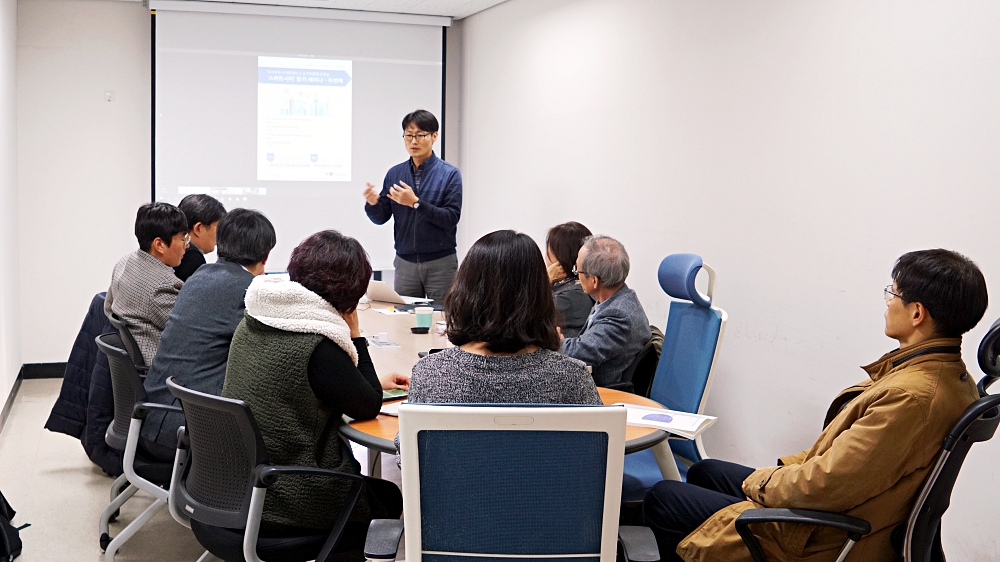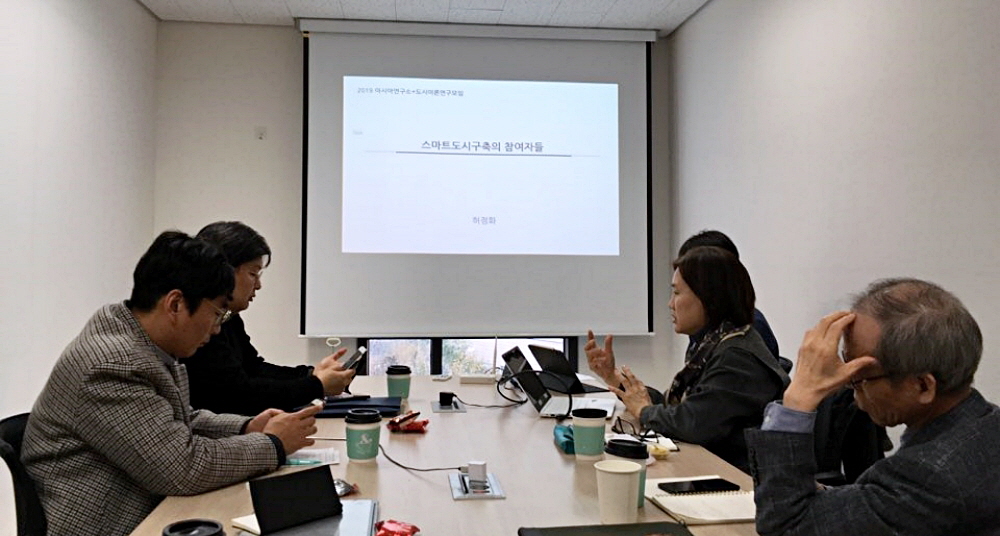
‘Smart City’ Reading Seminar – 2nd Session
- Date: November 29th, Friday, 2019, 14:30 – 18:00
- Location: Room 406, SNUAC (Bldg.101)
On November 29th, Center for Asian Urban Societies held <‘Smart City’ Reading Seminar – 2nd Session> jointly with Urban Theory Research Group.
Mook-Han Kim (Research Fellow at The Seoul Institute)’s <Choosing the Technology-Society System for Smart City> discussed which technology-society system we should choose for building smart cities as we want. Especially, there were questions raised about who should be the owner of smart city data as suggested by the process of “Sidewalk Toronto” that Google participated, and how we should respond to the changes in institutions and law that are separately discussed even though they are directly related to smart cities, such as the three data laws.
In <Participants of Building Smart Cities> by Junghwa Heo (SNU Institute for Korean Regional Studies / SWE City Development, Co.), we examined the major participants and characteristics of urban development projects centering around Songdo and smart city test project, from U-City to Smart City. While U-City project was led by transnational technological corporates, smart city project was led by the central government such as the Ministry of Land, Infrastructure and Transportation. It has recently been observed that the governance of smart city development was changed to SPC-oriented, similar to that of U-City.
Sung-Ho Hong (Research Fellow at Chungbuk Research Institute)’s <Limitations of the Smart City Living Lab, Achievements and Suggestions> introduced the case of planning theme-based specialized complex in Chungbuk Innovation City. As limitations of domestic local governing body planning a smart city, there were problems of creative plans and support system that can suggest the ‘nature of smart city’, and there were opinions that we should change the policy goal of smart city itself and the governance structure of posting and bidding system.
Prof. Ko Euntae (Joongbu University)’s presentation on <Smart City and Surveillance> discussed the smart city as a surveillance machine. Along with the nature of smart city’s surveillance, excessive surveillance, privacy, discrimination and exclusion, power, profit, and oppression were raised as issues to be discussed in the future. At the same time, there was a problem raised to the trend that individual urban issues are approved at once in package as ‘smart city’ without becoming separate agenda.



